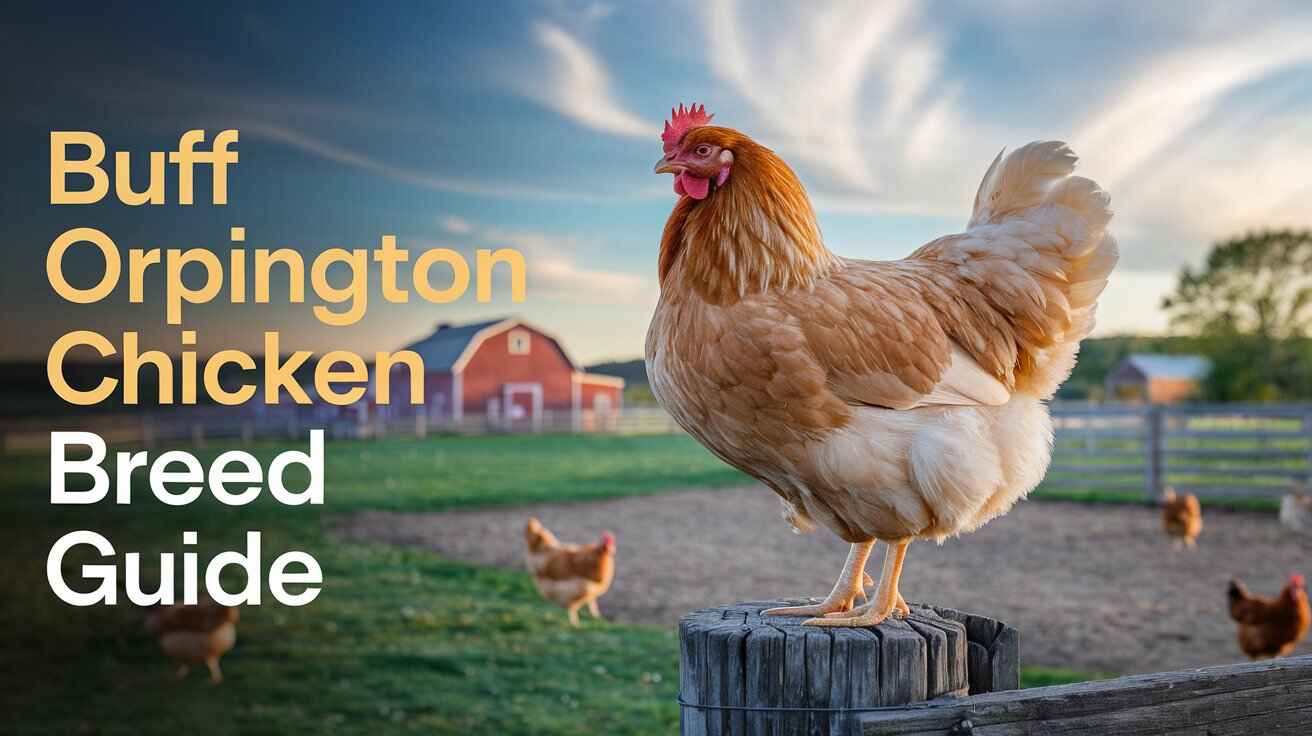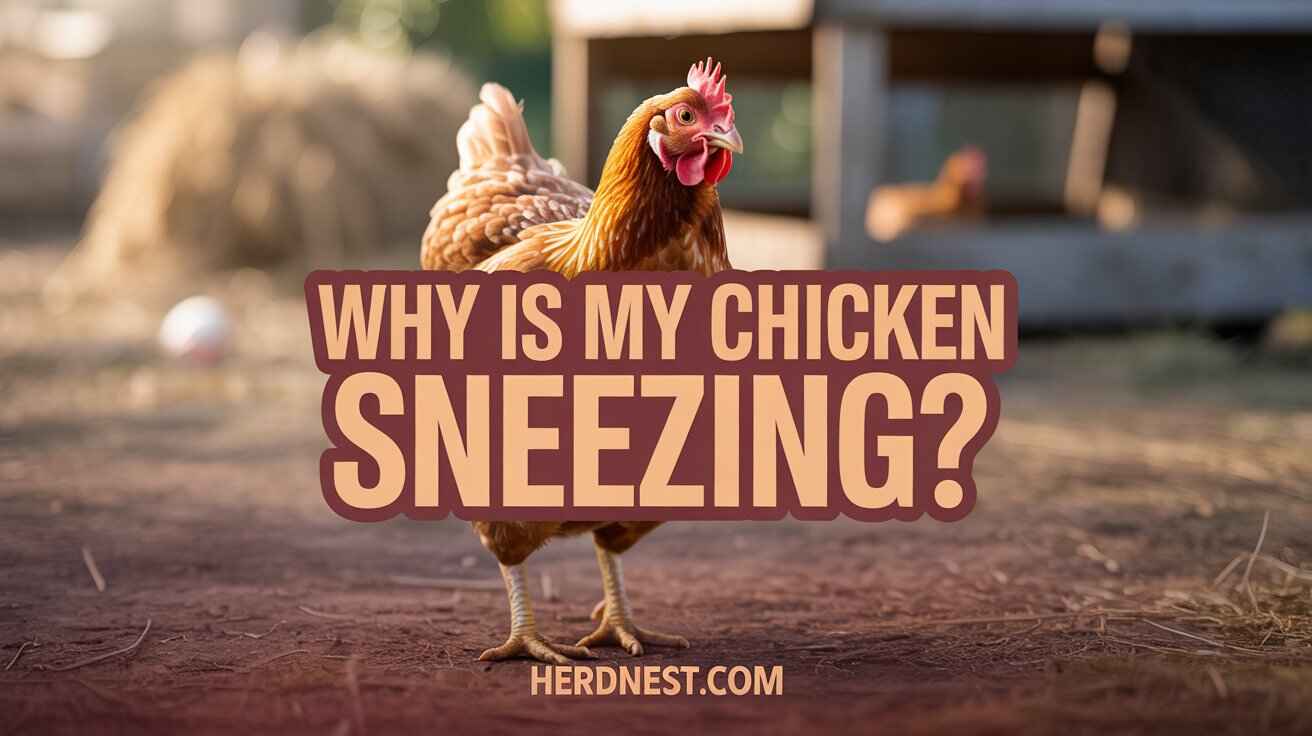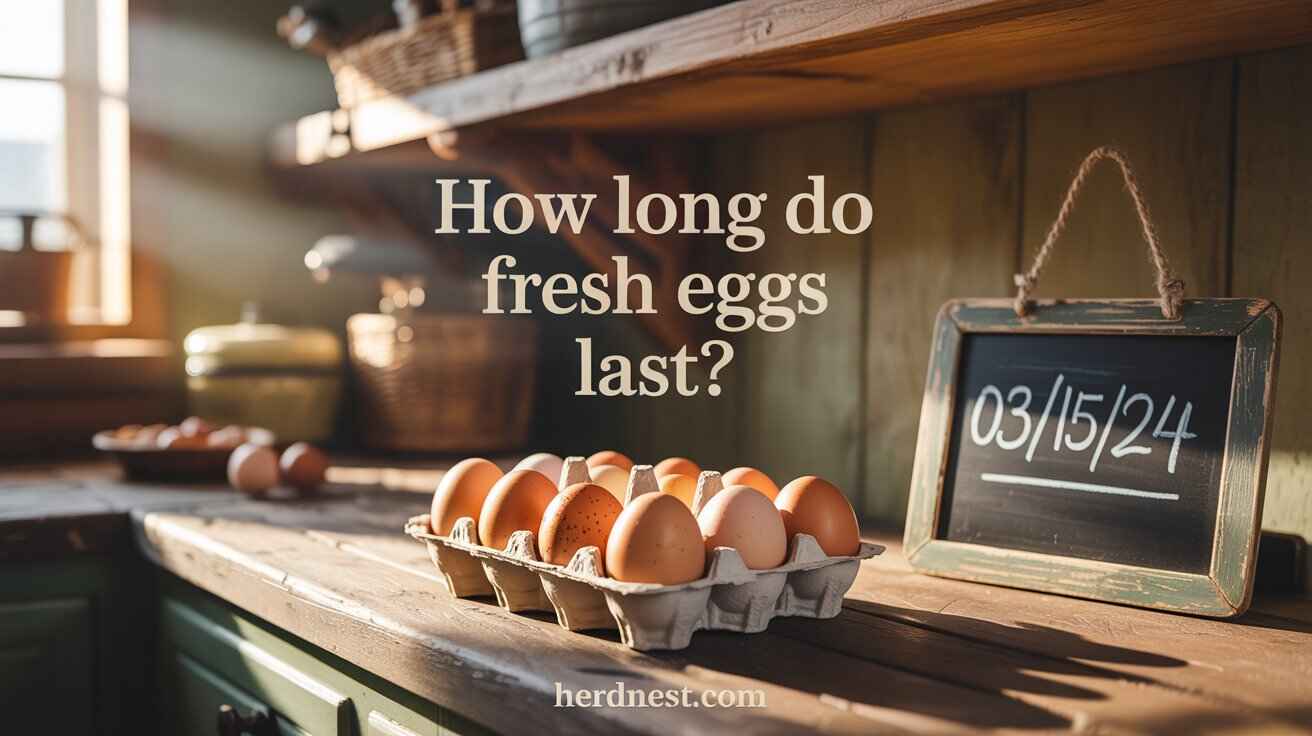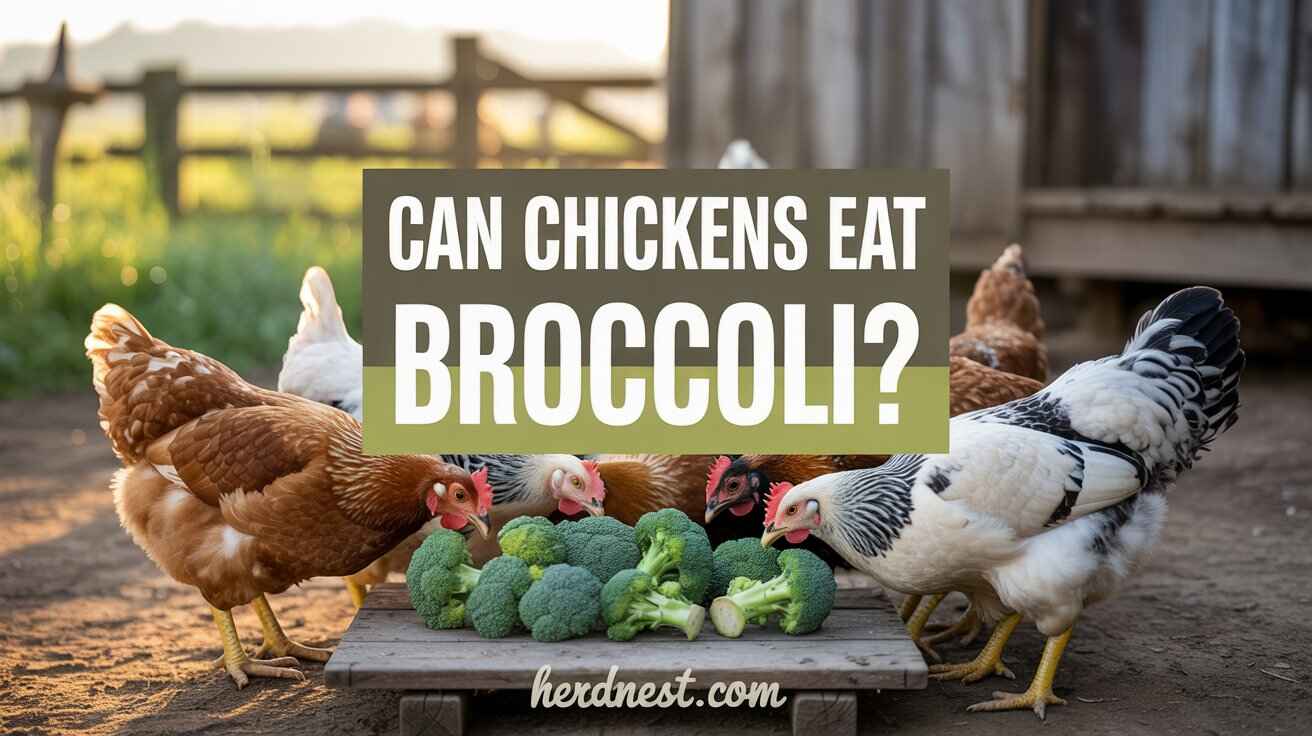The Buff Orpington is a breed that’s adored by backyard keepers and admired by enthusiasts worldwide. Known for its charming personality and golden plumage, this breed effortlessly combines beauty and utility.
Whether you’re looking for a dual-purpose chicken for both eggs and meat or simply a sweet and docile hen to brighten up your yard, the Buff Orpington is the perfect fit. Their gentle demeanor and adorable appearance make them ideal for beginners and seasoned breeders alike.
These practical birds thrive in various climates, but precautions are necessary in hot temperatures. Their fluffy plumage provides excellent insulation in the cold, but ensuring they stay dry is crucial.
With friendly personalities, they easily integrate into any flock and are perfect for households with children, as they love attention and are known to be great companions. If you’re looking for a favorite breed that promises both solid egg production and a delightful presence, you can’t go wrong with the Buff Orpington.

Table of Contents
ToggleHistory of the Buff Orpington
The Buff Orpington, a favorite among enthusiasts and farmers, has its origins in Kent, England, during the 1880s. Created by William Cook, this dual-purpose breed was designed to excel in both egg production and providing high-quality meat.
Using careful crossbreeding of breeds like the Cochin, Minorca, and Dorking, Cook developed a bird with a buff-colored appearance, soft feathers, and a gentle demeanor.
These birds quickly gained admiration for their plump bodies, fluffy plumage, and reliable utility, making them a perfect choice for both backyard keepers and commercial poultry farmers.
By the late 1800s, the Buff Orpington had captured the attention of scholars, fanciers, and breeders. Its golden hue and soft feathers made it a standout in the poultry world.
However, the breed’s popularity waned during the 20th century, as faster-growing factory breeds became more prevalent.
Efforts to preserve its heritage paid off when renewed interest in the 1980s led to its removal from the endangered species list by 2016, as noted by the Livestock Conservancy. Today, the Buff Orpington is celebrated for its practicality, fluffy appearance, and exceptional utility as a beloved breed.
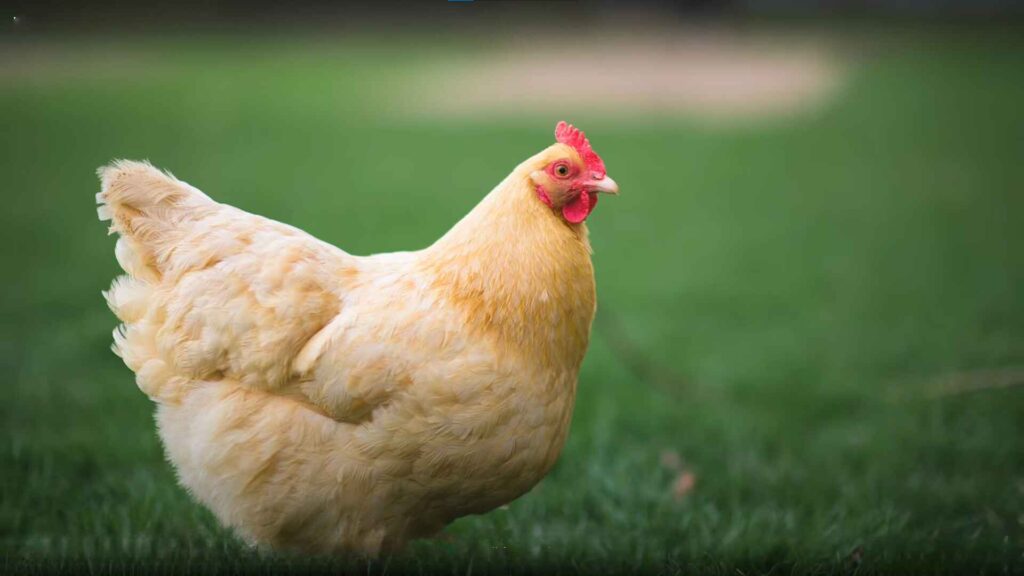
Distinct Features and Physical Characteristics
The Buff Orpington is a heavy breed admired for its broad body and fluffy feathers that create a rounded, full-bodied shape. Their soft plumage, with its golden buff-colored hue, resembles the shade of a ripe peach, making them one of the most beautiful chickens in any flock.
With hens weighing around 7-8 pounds and roosters slightly heavier at 8-10 pounds, their sturdy build adds to their majestic and appealing presence.
One standout feature is their “cushion,” an area of dense feathers near the vent that gives them a teddy bear-like appearance. Their medium-sized combs, bright red wattles, and smooth red earlobes complete their distinct look, while their short back and slightly U-shaped silhouette make them easily recognizable.
Whether it’s their prolific feathering or their ability to charm with their adorable shape, Buff Orpingtons remain a favorite for backyard keepers and enthusiasts.
Buff Orpington Breed-Specific Traits
With their friendly personalities and stereotypical behaviors like dust bathing and foraging, these heritage chickens are a backyard favorite. Known for their soft plumage and dual-purpose use, they produce 200 to 280 brown eggs annually, with pullets starting to lay between 5 and 7 months.
A young broiler can weigh 2 to 2.5 lbs in just 8 to 10 weeks, while an adult male reaches 10 lbs, and a hen averages 8 lbs. The breed is highly hardy, healthier than many industrial hybrids, and well-suited for both eggs and the table, making them an excellent choice for those seeking versatility and charm.
Friendly Temperament
The Buff Orpington is often praised for its gentle temperament and calm nature, making it a top choice for novice owners and families with children. These chickens are incredibly affectionate, often showing a mellow demeanor and enjoying human interaction. If you’re comparing breeds with similar friendly personalities, the Plymouth Barred Rock Chicken also stands out for its calm and sociable behavior.
With their large size and solid stature, they are easy to handle and rarely exhibit signs of bullying or aggression within a flock.
Much like the Golden Retriever of Backyard Chickens, Buff Orpingtons are known for their friendly personality and their ability to bond with their keepers. They are docile birds that thrive in regular contact, often following their owners around the yard and enjoying being lap pets.
This breed’s trusting nature and familiarity with humans make them one of the most extraordinary breeds for both beginners and experienced enthusiasts.
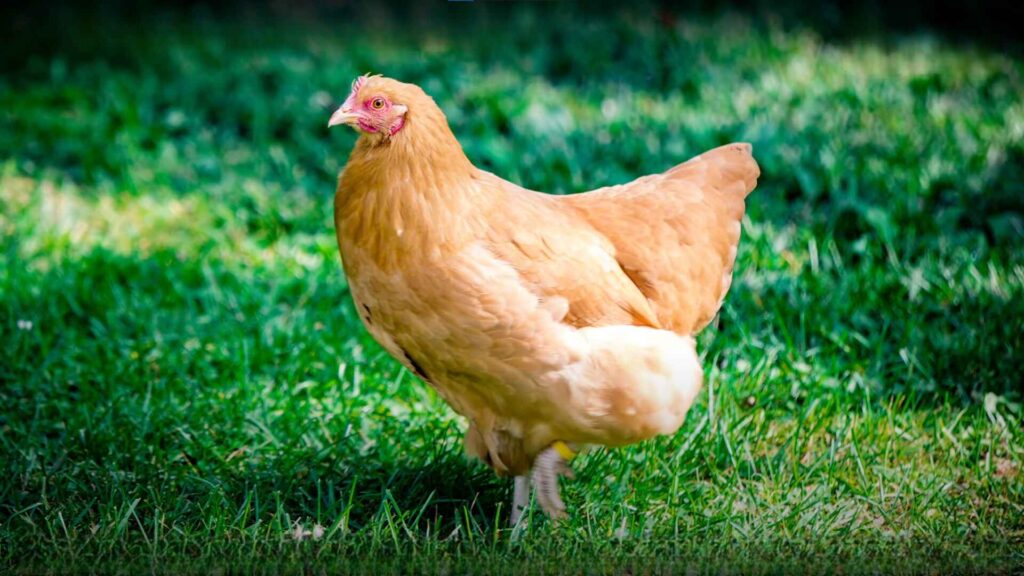
Maternal Instincts and Broodiness
Buff Orpingtons are known for their strong maternal instincts and natural broodiness, making them a favorite for breeders who want to hatch their own chicks.
These hens are incredibly reliable and will diligently sit on their eggs, caring for them with an unmatched commitment. Whether you’re raising a strain from a hatchery or working with a local breeder, the broody nature of these birds makes them an excellent choice.
In fact, their ability to nurture even other species, such as quail, highlights their advantageous traits. Their traditionally strong maternal instincts make them one of the most caring mothers, ensuring happy and well-raised young ones.
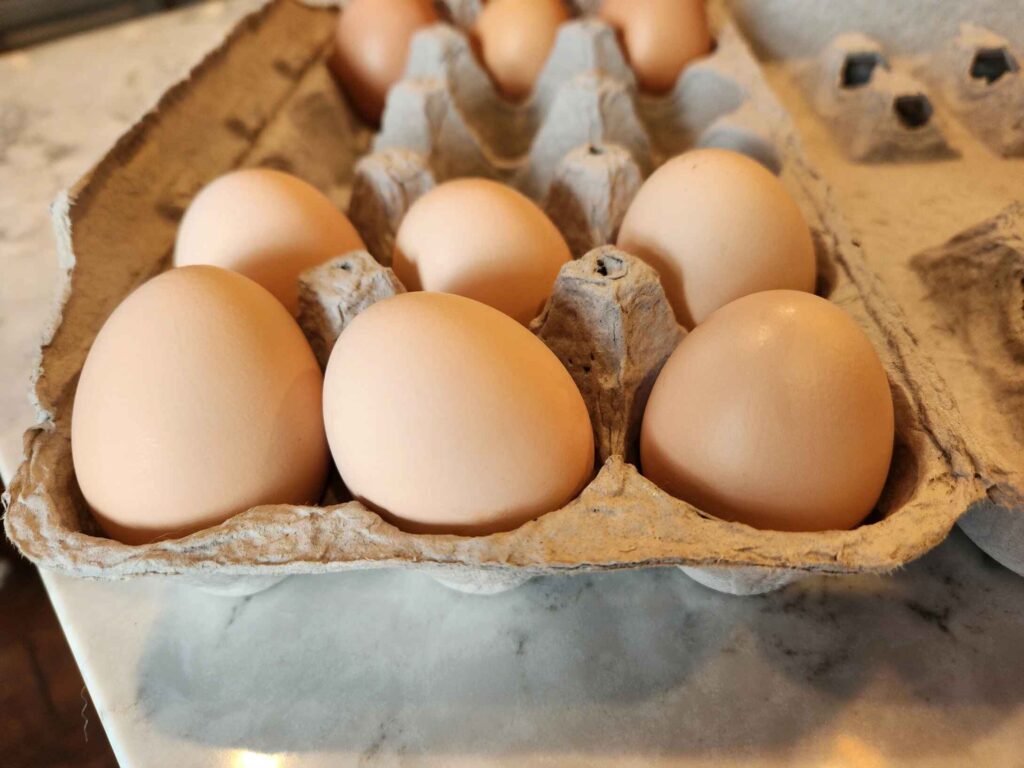
Egg Production
With their reliable egg production, these dual-purpose hens are a top choice for backyard chickens. They consistently lay 3-5 large, brown eggs weekly, even in colder months, and their eggs are sturdy, with creamy beige shells and occasional speckles. If you’re curious about breeds that produce deeper, chocolate-brown eggs, the Cuckoo Maran Chicken offers a striking contrast and is loved for its rich egg color.
Known for their bountiful supply, these hens balance productivity with ease of care. While they may not match other breeds in yearly totals, especially in spring and summer, their plumper eggs and consistent laying make them a valuable addition to any flock.
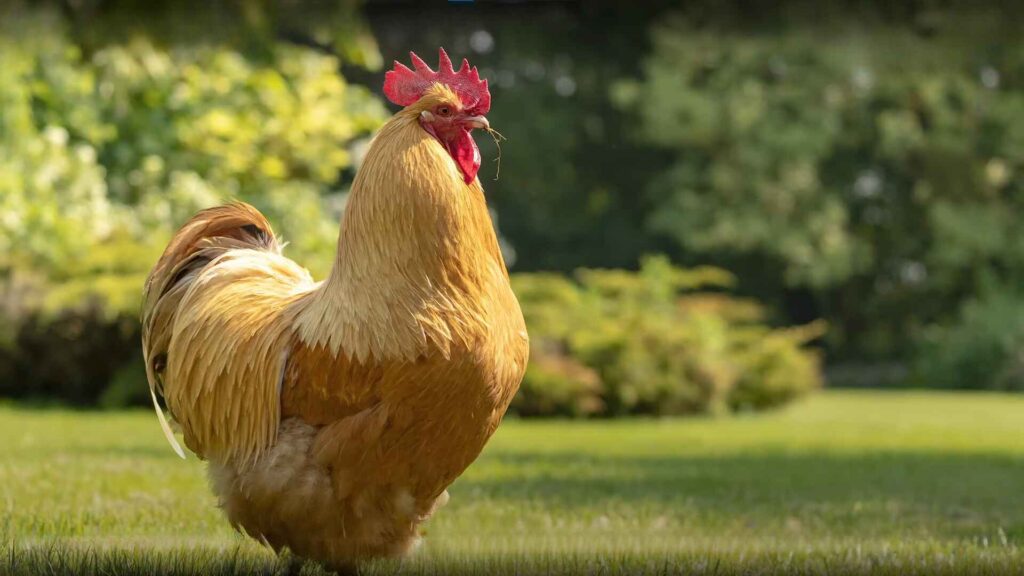
Heat and Cold Resistance
Buff Orpingtons are highly adaptable to varying climates, thriving in temperate regions with both warm summers and cold winters. Their dense plumage and soft downy feathers provide excellent insulation, allowing them to withstand frigid conditions and remain productive even in harsh weather. A similarly resilient breed that also brings a splash of color to the egg basket is the Sapphire Olive Egger Chicken, admired for both its adaptability and unique olive-toned eggs.
However, care is necessary to avoid issues like frostbite on their combs, especially in males, by providing adequate shelter and ensuring they stay dry.
In hot, humid zones, these chickens can struggle with overheating due to their large bodies and heavy feathers, so providing deep shade and fresh water is essential.
While they are incredibly tolerant of diverse conditions, extreme tropical weather can be problematic, making them best suited for moderate climates. Their versatility and hardiness have earned them a strong reputation among breeders and backyard flock owners alike.
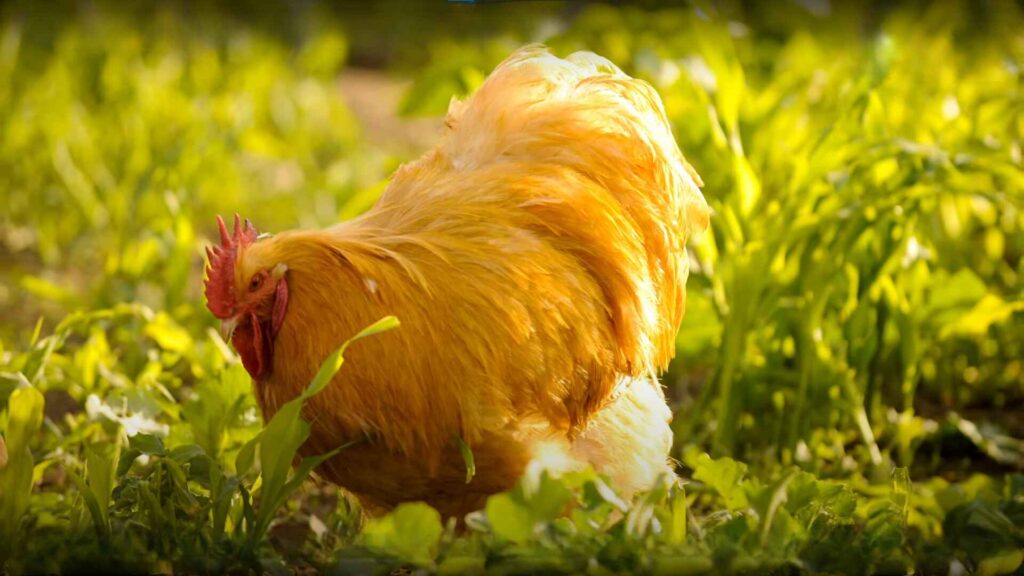
Common Buff Orpington Chicken Health Issues
Buff Orpingtons are generally hardy chickens, but they can face some common health issues. Parasites like mites and lice can hide in their densely feathered bodies, causing discomfort. Regular checks and providing a dust bath can help prevent infestations.
Bumblefoot, a staph infection in the foot pad, is another concern for these heavily built birds. Keeping perches low and the coop clean can minimize the risk. Frostbite is also common in cocks, especially during the winter due to their large combs. Applying beeswax salve and maintaining a well-ventilated coop can prevent it.
Additionally, issues like obesity can occur in these lazy birds, leading to a decline in egg production. Spacing out the feeder and water containers can encourage exercise and prevent weight gain.
Conditions like coccidiosis, sour crop, and pasty butt can affect the flock but are manageable with a clean environment, balanced diet, and appropriate care. Practicing biosecurity by keeping wild birds away and avoiding shared equipment with other poultry can ensure your flock stays healthy and productive.
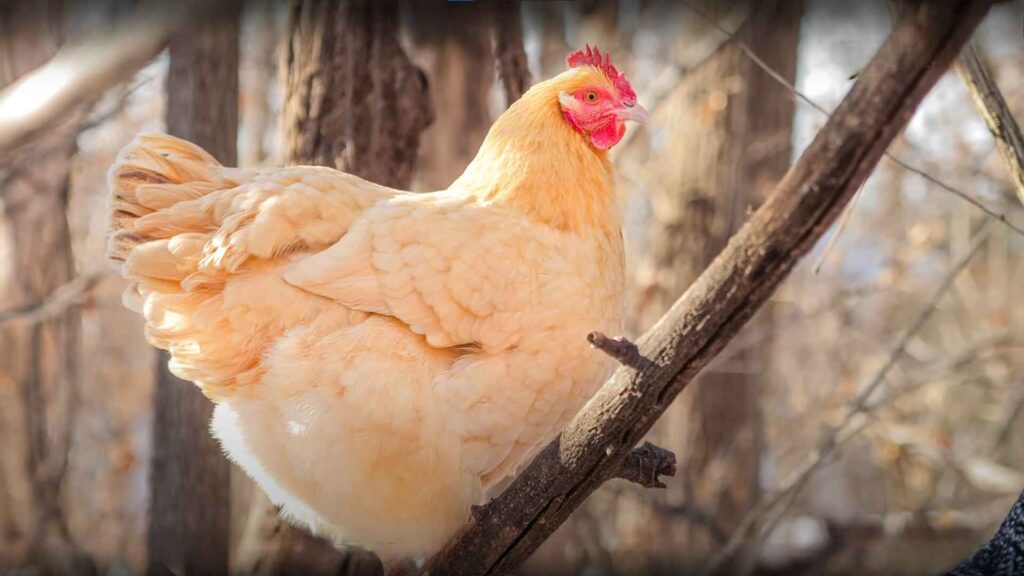
Caring for Your Buff Orpingtons
To keep your Buff Orpingtons healthy and productive, provide them with a spacious coop that offers at least 4 square feet per hen and an outdoor run of 8-10 square feet. Furnish the coop with sturdy roosts and nesting boxes to accommodate their large size.
A complete layer feed, along with 1/4 pound of food daily, ensures their hearty appetites are met. Supplement their diet with nutritious treats like scratch, vegetables, fruits, and even bugs when they are allowed to free range.
Prevent obesity by avoiding long periods of inactivity and encouraging an hour of outdoor roaming daily. Ensure they always have access to fresh water in tip-proof containers. By maintaining a balanced diet and proper care, these gentle giants will continue to thrive in your flock.
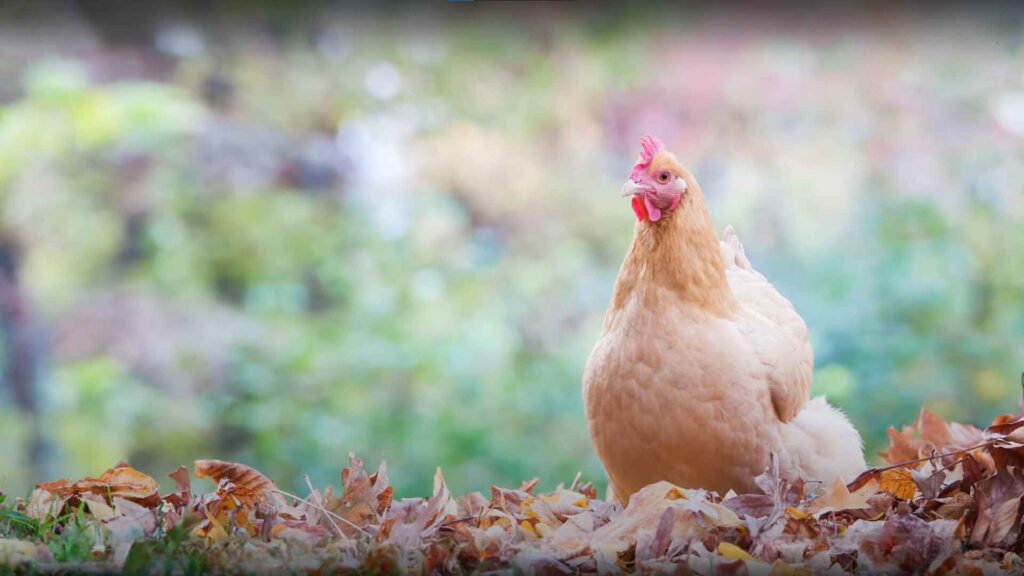
Pros of Buff Orpingtons
Buff Orpingtons are a top choice for beginners and families with children, thanks to their friendly temperament and docile nature. Their large size, with hens weighing 8-10 lbs and roosters 10-12 lbs, adds to their majestic appearance, complete with soft, fluffy golden feathers.
They are a dual-purpose breed, excelling in both egg production and meat. Expect 4-5 brown eggs weekly, even in colder weather, showcasing their hardy and heat-tolerant qualities. For flock owners focused on high egg yield above all, the ISA Brown Chicken stands out with its incredible laying consistency and low-maintenance care.
Their gentle demeanor makes them great for gardens and landscaping, as they are unlikely to cause damage. While their food requirements can be higher due to their large size, their beautiful appearance and versatility make them a rewarding addition to any flock.
Cons of Buff Orpingtons
While Buff Orpingtons are a great addition to any flock, there are some drawbacks to consider. Roosters, due to their large size, can sometimes appear scary and may act aggressively toward humans.
Similarly, hens can become broody and frequently aggressive during this time. These birds are also slower to mature, which can delay egg production and meat readiness compared to other breeds. However, understanding their potential challenges can help you prepare for these situations effectively.
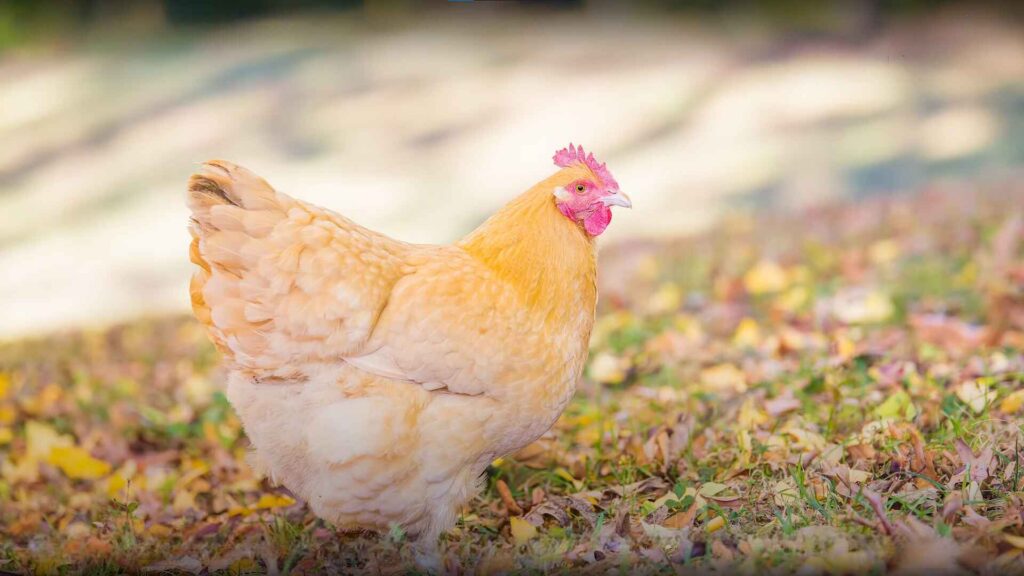
Conclusion
If you’re looking for a family-friendly bird with remarkable traits, the Buff Orpington is an excellent choice. Their gentle demeanor, affectionate nature, and dual-purpose qualities make them a favorite for both beginners and experienced breeders. Whether in a coop or allowed to free-range, they thrive with proper care and offer endless joy to their keepers.
Raising Buff Orpingtons is not just about their stunning golden plumage or egg production but also their charming personalities and cuddly appeal. These versatile chickens are perfect for those seeking a healthy, reliable breed for eggs, and meat, or as a delightful addition to the flock. From children to seasoned poultry enthusiasts, they remain a timeless choice in poultry-keeping.
